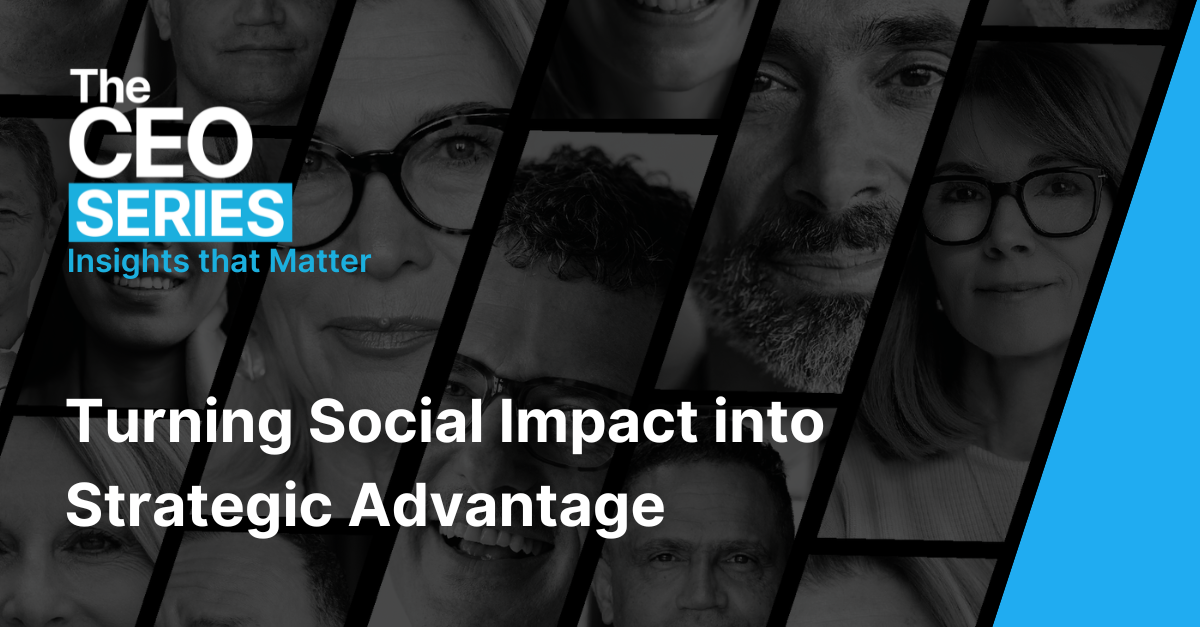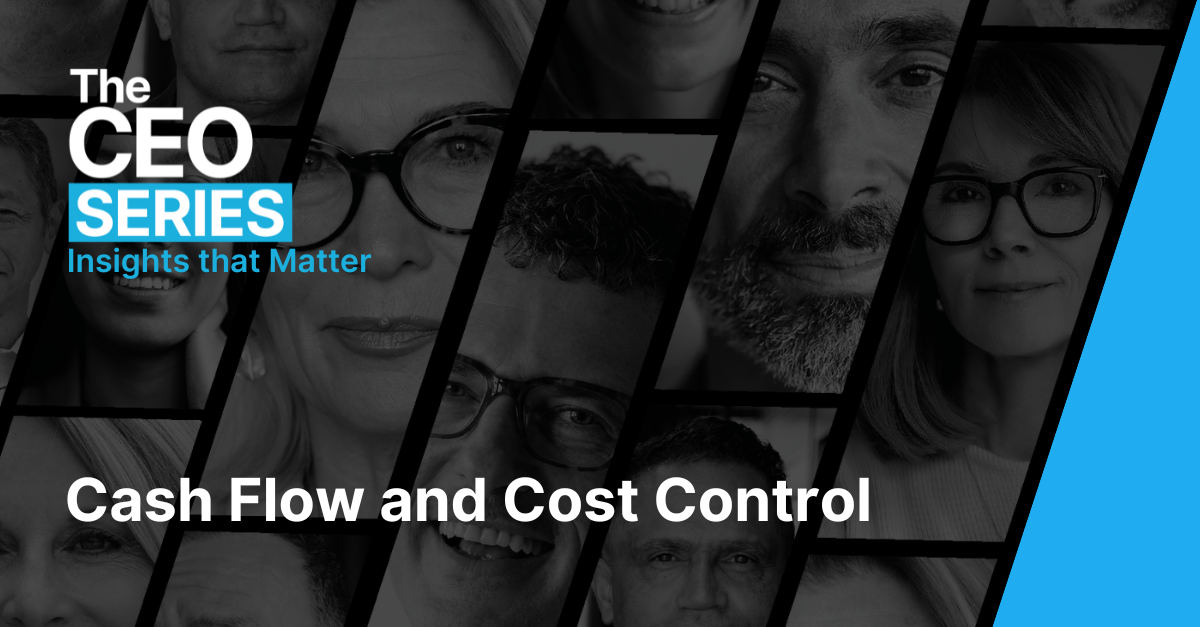Social performance covers all the impacts of your business on people – staff, suppliers, customers and communities.
Business leaders have the power to create social value alongside profit, driving social performance. And forward-thinking leaders are already baking it into their corporate strategy and ESG reporting.
- 76% of leaders expect their company’s investment in social impact initiatives to rise over the next 12 months (2025 Executive CSR Report)
- 94% of CFOs believe social will be an important priority in 2030 (The ESG Revolution – KPMG Australia).
“Now more than ever, businesses that proudly deliver on social performance will see long-term competitive advantage. Customers want it. Investors are looking for it. Employees are drawn to it. Companies with genuine commitments to create social value as part of their corporate strategy, will be rewarded with long-term profitability.”
- Tara Anderson, CEO Social Traders
Importance of social performance
While the Environmental and Governance pillars tend to get most attention in terms of identifying risk and reporting, Social is often overlooked.
Recent research by the Centre of Social Impact shows ASX100 companies reporting on the Social pillar in ESG, is heavily focused on internal metrics like diversity (97.85%) and employee training (91.40%), while broader social issues and impact remain largely overlooked. Most disclosures cover internal operations, with little attention to supplier or community impacts.
How business can enhance social performance
The Social pillar in ESG is broad and these are some of the ways companies can enhance their social performance.
- Fair and inclusive employment: Ensuring fair wages, supporting diversity and inclusion in the workforce to create opportunities for underrepresented groups and contribute to social equity, provide learning and development opportunities and create a positive and safe work environment.
- Supplier diversity: Promoting ethical sourcing practices, ensuring fair labour conditions (human rights/modern slavery), and supporting sustainable supply chains with diverse supplier programs/social procurement (i.e. buying from social benefit suppliers).
- Ethical product design: Creating affordable and accessible products or services that’s priced responsibly and designed to include more people in the community. Be more successful with your customers.
- Workplace giving and corporate philanthropy: Contributing to charitable causes, supporting social programs, volunteering, corporate donations and grant programs.
- Community wellbeing initiatives: Participating in local initiatives, supporting overall education, health and economic stability of communities they operate in.
Social performance in action
Mirvac, an Australian property group, is one corporate who is actively looking to lead in social performance and proactively showcase the positive impact it has on communities.
For Mirvac, the social and commercial benefits of social sustainability are intertwined and both equally important. Their social performance strategy focuses on three key areas:
- People: Ensuring active, inclusive care for their employees.
- Connection: Leaving a positive legacy and building strong bonds with communities.
- Inclusion: Creating a sense of belonging and investing in the social sector.
An example of Mirvac putting social sustainability strategy into their operations, is through embedding supplier diversity in their supply chain to unlock social value. In 2024, Mirvac and Green Connect, a certified social enterprise, won the Social Trader’s National Social Procurement Impact Partnership Award for their focus on sustainability, waste diversion, and ethical labour hire.
In FY24, Mirvac was not only able to recycle 66% of its total operational waste through this partnership but also supported 250 staff from Green Connect being employed to assist with waste auditing for Mirvac. These are people from marginalised communities that would have been shut out of work.
This winning partnership fosters inclusive employment while reinforcing Mirvac’s commitment to directing $100 million to the social sector by 2030 and achieving zero waste.
How to start measuring social impact in any business
Social procurement: It’s one of the easiest ways you can enhance your social performance and report on it. It involves buying from suppliers dedicated to social or environmental impact including certified social enterprises. You’ll obtain quality goods and services at a reasonable price, mitigate risk and have a positive social impact. Through certified social enterprises, you can track your spend with tangible outcomes like hours of employment created, training hours provided and even tonnes of waste diverted from landfill.
Workplace giving and corporate philanthropy: This isn’t just supporting local initiatives or causes. Consider how you use the skills of your people to help build capability of social enterprises, by being strategic on your partnership – aligning your corporate values and goals with the beneficiaries you’re supporting. You can track the hours and salary donated.
What most companies miss in ESG’s social pillar
Not understanding the “Social” taxonomy in ESG and the diverse topics it covers that impacts customers, suppliers, communities and employees.
There is also a lack of understanding of the social enterprise sector – businesses that have been balancing profit and purpose for decades – and the untap potential corporates can realise by partnering with them to deliver more social value.
When it comes to reporting and measurement, companies need to consider how to measure real social outcomes – not just initiatives or programs run.
Tools to measure social value without hiring a consultant
- Work with certified social enterprises to translate your spend into tangible outcomes. They have the frameworks to report on this as it’s required by funders, or they partner with an industry body to provide reporting to corporates on their behalf.
- Explore and understand the United Nations Sustainable Development Goals (UN SDGs). There’s 17 goals to spark your thinking on what your organisation might be able to help achieve. Look at the targets under a specific goal to get an idea of how you can set your strategy and steps to take.
- For example under UN SDG 8 – Decent work and economic growth: One of the target is to achieve full and productive employment and decent work for all women and men, including for young people and persons with disabilities, and equal pay for work of equal value by 2030.
- The Victorian Social Procurement Framework is the best in the country, which other States are following. It’s a policy that encourage businesses to increase the social value and inclusion of their work, and to reward and recognise businesses that support their communities like social enterprises and Indigenous businesses as suppliers. Familiarise yourself with the policies which you can then adapt and adopt in your business, to enhance your social performance.
The future of good business
There are many parts of the world including Australia, where ESG integration isn’t just popular it’s legally required.
- Mandatory Australian Sustainability Reporting Standards (ASRSs). The ASRAs came into effect in January for large businesses. Companies have to report on all relevant sustainability-related topics across the governance, strategy, risk management, and metrics and targets, in a similar way to annual financial reports.
- EU’s Corporate Sustainability Due Diligence Directive (CSDDD). The CSDDD introduced assured integrated reporting on responsible corporate behaviour. Australian business subsidiaries with ‘in scope’ parent companies or contracting with ‘in scope entities’ may be subject to new checks on human rights and environmental standards.
- The International Sustainability Standards Board (ISSB) has an open research project covering ‘human capital’ as a next consideration for mandatory disclosures.
It’s only a matter of time before social performance is part of mandatory reporting. Although shifts in regulatory and stakeholder expectations are a complexity for businesses to navigate, it can also be seen as an opportunity for organisations to innovate and get a competitive edge.
Businesses that champion social performance now will future-proof their success and set the gold standard for leadership in the 21st century. Using the power of business to create more social value alongside profit, will translate into long-term business performance and shareholder value. It’s the future of good business.
This article was developed in collaboration with Social Traders, a leading industry body in social enterprise and social performance. Established in 2008, they’ve been supporting more than 300 businesses to track, measure and improve their social performance. Social Traders is also Australia’s certifier of over 700 social enterprises. Learn more at www.socialtraders.com.au


.png)

